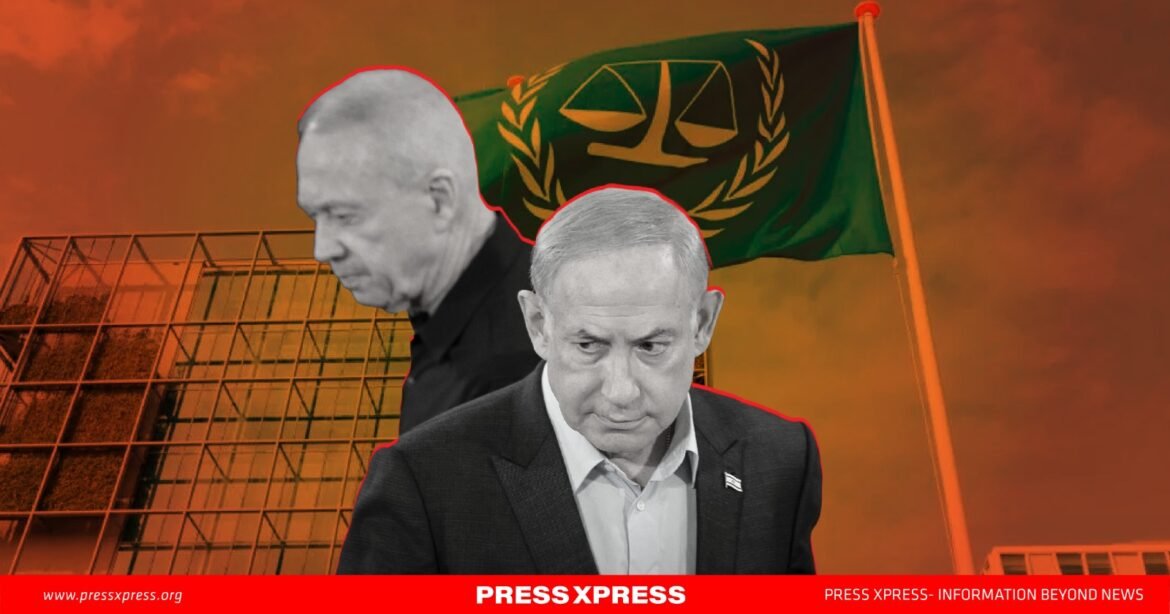In a groundbreaking move, the International Criminal Court (ICC) has issued arrest warrants for Israeli Prime Minister Benjamin Netanyahu and former Defence Minister Yoav Gallant, accusing them of war crimes and crimes against humanity. This marks a historic precedent for the ICC, as it is the first time the court has targeted senior officials from a Western-allied nation.
The ICC alleges that Netanyahu and Gallant “intentionally and knowingly deprived the civilian population in Gaza of objects indispensable to their survival, including food, water, medicine, fuel, and electricity” during Israel’s military operations following the October 7, 2023, Hamas attack. These actions, according to the court, constitute the use of starvation as a weapon of war and deliberate attacks on civilians.
Jurisdictional Challenges and the ICC’s Decision
Despite Israel’s vocal opposition and repeated challenges to the ICC’s jurisdiction, the court upheld its authority. Although Israel is not a member of the ICC, the state of Palestine, recognized as a member since 2015, allows the court to investigate crimes committed in Gaza, the West Bank, and East Jerusalem. The ICC’s Pre-Trial Chamber I emphasized that “Israel’s acceptance of the Court’s jurisdiction is not required” due to Palestine’s membership.
This decision has amplified tensions in an already volatile region. Netanyahu has dismissed the ICC’s authority, calling it an “illegitimate institution.” However, the warrants place Israel under international scrutiny, particularly in light of the ongoing humanitarian crisis in Gaza.
Parallel Warrants for Hamas Leaders
The ICC also issued an arrest warrant for Mohammed Deif, the leader of Hamas’s Qassam Brigades, accusing him of crimes against humanity and war crimes, including the orchestration of the October 7 attack that killed over 1,200 Israelis and resulted in the kidnapping of 251 individuals. While Israel claims to have killed Deif in an airstrike earlier this year, the court stated it could not confirm his death.
Other Hamas leaders, including Ismail Haniyeh and Yahya Sinwar, were also targeted by the ICC. Both men have since been killed in Israeli strikes, leading the prosecutor to withdraw their warrants.
A Year of Catastrophe
The ICC’s actions come amid a war that has claimed more than 44,000 Palestinian lives, according to Gaza’s health ministry. The devastation in Gaza has been unparalleled, with entire neighborhoods reduced to rubble, hospitals overwhelmed, and essential infrastructure decimated. The ongoing blockade has exacerbated the suffering, with civilians struggling to access basic necessities like food and clean water.
On the other side, Israel has faced a domestic reckoning, with the October 7 attack marking one of the deadliest days in the nation’s history. The brutal assault by Hamas fighters has left deep scars, with hostages still held in Gaza.
International Reactions and Implications
The ICC’s move has polarized global opinion. While many nations in the Global South have welcomed the warrants as a step toward accountability, Western powers, including the United States, have criticized the court’s actions. The Biden administration, which has previously supported ICC warrants against Russian officials, now faces accusations of double standards for its opposition to the ICC’s pursuit of Israeli leaders.
Netanyahu and Gallant risk arrest if they travel to any of the 124 countries that are ICC member states. While the court lacks enforcement powers, these warrants could significantly constrain their international movements and increase pressure on Israel.
Justice or Politics?
For many Palestinians, the ICC’s actions represent a long-overdue acknowledgment of their suffering. Yet, critics argue that the court’s lack of enforcement mechanisms undermines its ability to deliver justice. As Gaza endures its 410th day of war, with no end in sight, the question remains: will these warrants pave the way for accountability, or will they further entrench divisions in an already fractured conflict?
The ICC’s decision underscores the critical role of international law in addressing the atrocities of war. However, with the situation on the ground deteriorating and political dynamics at play, the path to justice remains fraught with challenges.


